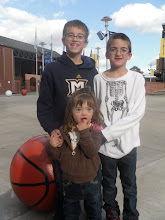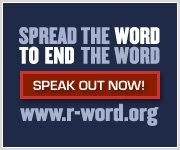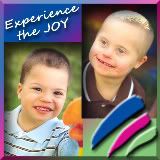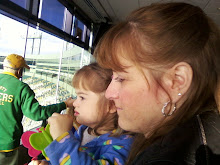Continuing on from my previous discussion…Ferguson (2003) also talks about how a sociocultural view can impact how professionals view parents’ ability to cope with the diagnosis of their child. How they cope and respond is influenced by the time and society they live in. Looking at the history of the United States and what was the norm in the treatment of children with cognitive disabilities, we see that there was pressure in our society in the 1950s to institutionalize children with such needs. Documentaries that I have already discussed, Where’s Molly and Unforgotten: Twenty-Five Years After Willowbrook illustrate this. This doesn’t mean that every parent institutionalized their child with cognitive disabilities, but that was by far the norm. If you ever watch either one of these films, you also see the language that was used – the “r-word” and how uncomfortable people appeared in even mentioning or talking about this subject. Fast forward to the 1980s – this follows the passage of P.L. 94-142 in the 1970s, which gave children with disabilities, ages 3 to 21, right to a free, appropriate education in the least restrictive environment. We had greater acceptance of children with disabilities in the 1980s, but there were still stereotypes, difficult words, and jokes. Continue to fast forward to 2009. We have more advocacy and support groups which aid parents. We belong to such groups and they have been a great sense of support for us. We know that we are not alone, and there is not the code of silence that there once was. There is a preference now for person-first and politically-correct language, but as we well know the other does still occur, with jokes, movies, and slang making fun of individuals with cognitive disabilities. Don’t get me wrong, I am happy that I live in this time and in this country, but one can only hope that it just gets better and better.
But remember how parents may cope and how professionals work with these families is not only impacted by the time, but by the society too. Rosa Monckton wrote an article about how Bulgaria views disabilities. Monckton, the mother of a child with Down syndrome, traveled from the United Kingdom to Bulgaria to learn about such children placed in orphanages. Here is an excerpt from the article:
“In another institution I was taken around by a blonde Cruella de Vil: stiletto heels, heavily made-up, clutching a clipboard as we marched along a corridor. Stopping at each window, she consulted her list, took the pen from behind her ear and pointed: ‘This one cerebral palsy, this one very handicapped, this one Down's Syndrome, this one don't know....’
I asked to go into one of the rooms and picked up the nearest child, a living skeleton. And what was wrong with him? He was blind. Just blind. But now he was starving to death, rocking and banging his head against the side of his cot. On another visit, I asked the director, a paediatrician, about a child with Down's Syndrome. Why was she here? ‘She has Down's Syndrome, she will die.’ I told her that this was not true, that these children could live fulfilled lives. Angered, she asked: ‘Are you a doctor?’ No, I replied, but I was the mother of a child with Down's Syndrome. ‘But you are not a doctor, so you don't understand... these children have no use. They should never have been born.’”
If you would like to check out the whole article, you can do so at this link: http://www.timesonline.co.uk/tol/comment/columnists/article5720609.ece
In closing, I really am at a loss of what profound thing to say other than I am just saddened by how many beautiful children who just so happen to have Down syndrome have to suffer because of prejudice, ignorance, and our own failings as human beings. This not only occurred in the past in our own country, but is happening today in other places in our world. Please do your part to make sure that this doesn’t continue by spreading awareness to others. Thanks.
-Karyn
What day is it, even?
5 years ago


















No comments:
Post a Comment